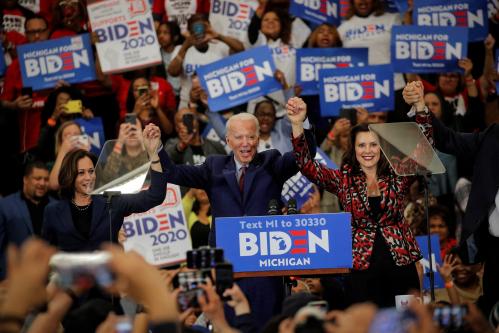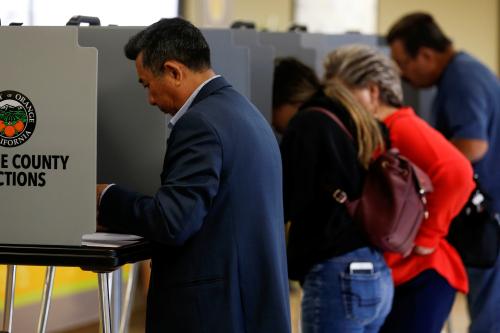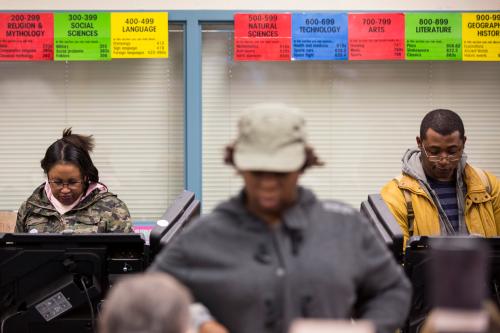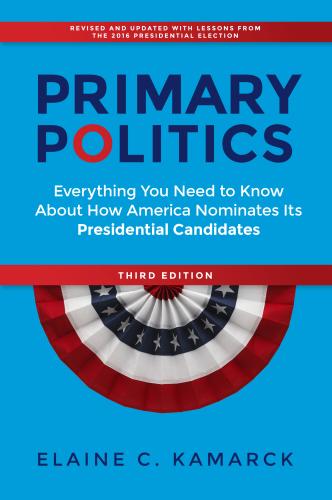Against the backdrop of muddled results from the botched Iowa caucuses, New Hampshire’s first-in-the-nation primary, always an important bellwether, has done what Iowa failed to do: bring some clarity to the Democratic race. The three winners last night, Senator Bernie Sanders, Mayor Pete Buttigieg and Senator Amy Klobuchar, together accounted for about 70% of the overall vote with five others falling very far behind.
But in New Hampshire the straightforward vote totals are rarely the only story and often the least interesting story. The New Hampshire primary is famous for producing “winners” who don’t actually win but who exceed expectations. And it has done it again. Senator Amy Klobuchar was the clear winner of the expectations primary. All year long she has had trouble breaking out of single digits and in Iowa she finished in fifth place. But in New Hampshire she benefitted from a stellar performance in the debate on Friday night and from the fact that many New Hampshire voters remained undecided going into the weekend. She seems to have taken white college-educated women away from the other woman in the race, Senator Elizabeth Warren, and she took a strong lead among moderate voters who were assumed to be supporters of former Vice President Joe Biden. Her challenge now is to mobilize resources quickly enough to be competitive in the final two early contests, Nevada and South Carolina.
Biden was the second big story of the night, but for him it was a story of dashed expectations. New Hampshire was the second consecutive election to puncture the Democrats’ belief that Biden was the strongest candidate against Trump. In the exit polls, voters who said that their primary reason for voting was for someone who could beat Trump did not choose Biden; he came in 4th behind Buttigieg, Klobuchar, and Sanders. Biden also came in fourth place among moderate voters and among the oldest voters, age 65 and up. He will not win a single delegate from New Hampshire, a devastating story for someone who had been the frontrunner for more than a year. The fact that he left New Hampshire for South Carolina early, without talking to his supporters, says it all. South Carolina is where Biden needs to be “the comeback kid,” a term coined by Bill Clinton in 1992 after coming in second in the New Hampshire primary. In the next few weeks we will see whether Biden can hold onto support in the Black community in the face of two very disappointing finishes.
Senator Sanders’ win was solid but expected. He is from a neighboring state, Vermont, and he has won New Hampshire before. In 2016 Sanders beat Hillary Clinton 60.4% to 38%, receiving 152,000 votes, the biggest win in the state since John Kennedy won it back in 1960. This year he fell well short of 30% of the vote and received fewer than 100,000 votes. So, while this was a good night for Sanders, he clearly suffered defections in a multi-candidate race compared to what he had achieved four years before. He did win younger voters, liberal voters, and white men with no college degree. His strength among this last category is a strong argument for his contention that he can defeat Trump. But Sanders did poorly among moderates and independents.
Pete Buttigieg had another good night with a very close second place to Sanders and following his victory in the Iowa delegate count. But he now faces his biggest test yet: winning in the diverse states of Nevada and South Carolina, where his polling among communities of color (like of that of Klobuchar) has been in the low single digits thus far. His weakness in the Black community could put an end to his phenomenal rise.
So, moving forward, Democrats can contemplate at least three scenarios. In the first one, New Hampshire has successfully narrowed the race, Warren and Biden voters move to shore up one of the three winners, and somehow Democrats produce a winner by the time the primaries end. In the second one, the race remains a muddle going into Super Tuesday and, as former New York Mayor Michael Bloomberg hopes, voters turn to him as a fresh face and their way out of the muddle. And the third scenario is that the race remains a muddle all the way to June, with three or more candidates winning delegates but no one reaching the magic number—in which case Democrats in 2020 could hold the first brokered convention in 68 years.
Finally, New Hampshire brought a bit of cheer to Democrats who suffered through the Iowa debacle—where not only was the voting a mess, but turnout was lower than it was four years ago. With votes yet to be counted, it is clear that turnout in New Hampshire this year will substantially exceed turnout in 2016 and may even equal the total reached in the high-energy 2008 New Hampshire primary, which pitted Hillary Clinton against Barack Obama.
The Brookings Institution is committed to quality, independence, and impact.
We are supported by a diverse array of funders. In line with our values and policies, each Brookings publication represents the sole views of its author(s).











Commentary
What do the results of the 2020 New Hampshire primary mean?
February 11, 2020